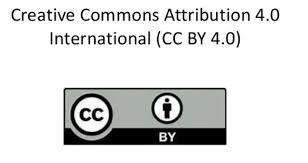Culture practices and health management issues in selected aquafarms of Rajbari, Bangladesh: A preliminary study
DOI:
https://doi.org/10.47440/JAFE.2021.2119Keywords:
Aquaculture; Fish disease; Pond; Rajbari; Water qualityAbstract
The current study was conducted to determine the existing fish culture systems and health management practices in the selected aquafarms of Rajbari District, Bangladesh. Data were collected from 50 fish farmers from October 2019 to February 2020 using questionnaire interview, focus group discussion and crosscheck interview. It was found that most of the aqua farmers had 11 to 15 years’ experience of fish farming and more than 30% had their own ponds. The farmers used to prepare ponds for stocking by several steps like pond drying, bottom mud removal, dyke construction, liming, fertilizer application, and finally stocking. Only 20% fish farmers stocked single fish species like pangas and tilapia, whereas other used to stock two to eight types fish species. Most of the fish farmers sell the harvested fishes either in the local or in city markets. Major fish health problems in the study area were infectious and non-infectious diseases occurred due to bacteria, virus, fungus, parasites, unfavorable water quality and malnutrition. Majority (94%) of the farmers did not have water quality measurement tools. However, the major health problems of fish were
ranked by the farmers on the basis of critical condition where fish disease, poor water quality, fish killing as a part of enmity, entrance of wild animal and hamper due to fish eating birds were ranked as 1st, 2nd, 3rd, 4th and 5th utmost constraints, respectively. Forty-four percent and 20% respondents received training on different aquaculture techniques from Government and nongovernment organizations, respectively. While during disease outbreak, most of them received technical assistance from the culture fellows. The fish farmers of the study area were not aware of good aquaculture practice maintaining
biosecurity. The present study revealed that there is a lack of scientific knowledge of the fish farmers in the studied areas which demands further improvements of the existing condition.






 Publisher:
Publisher: 